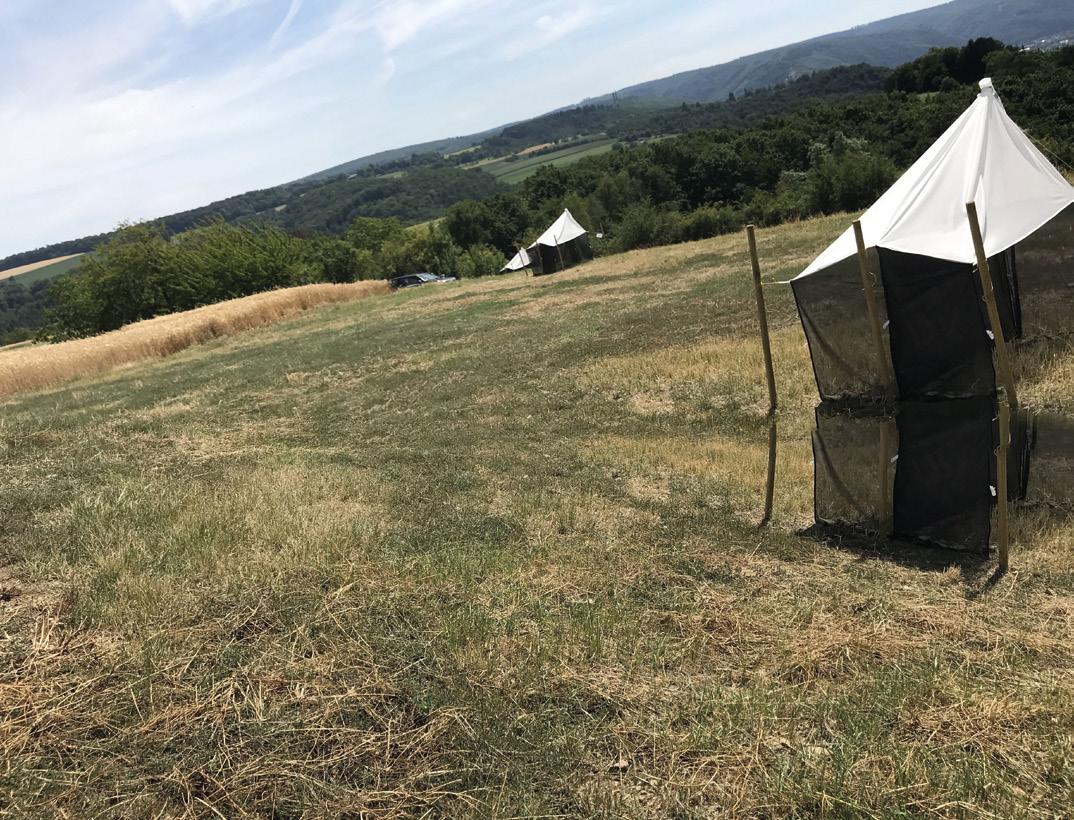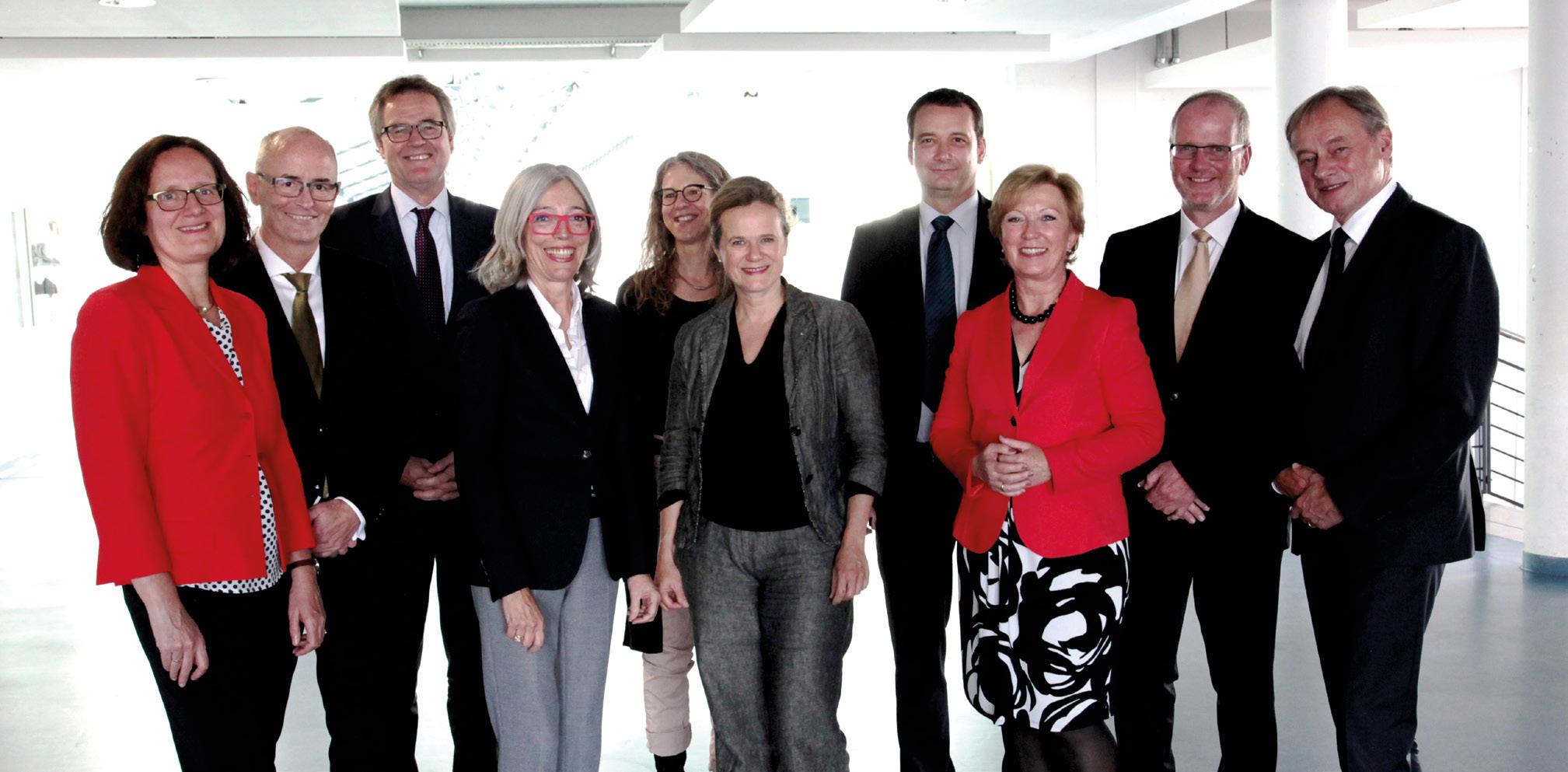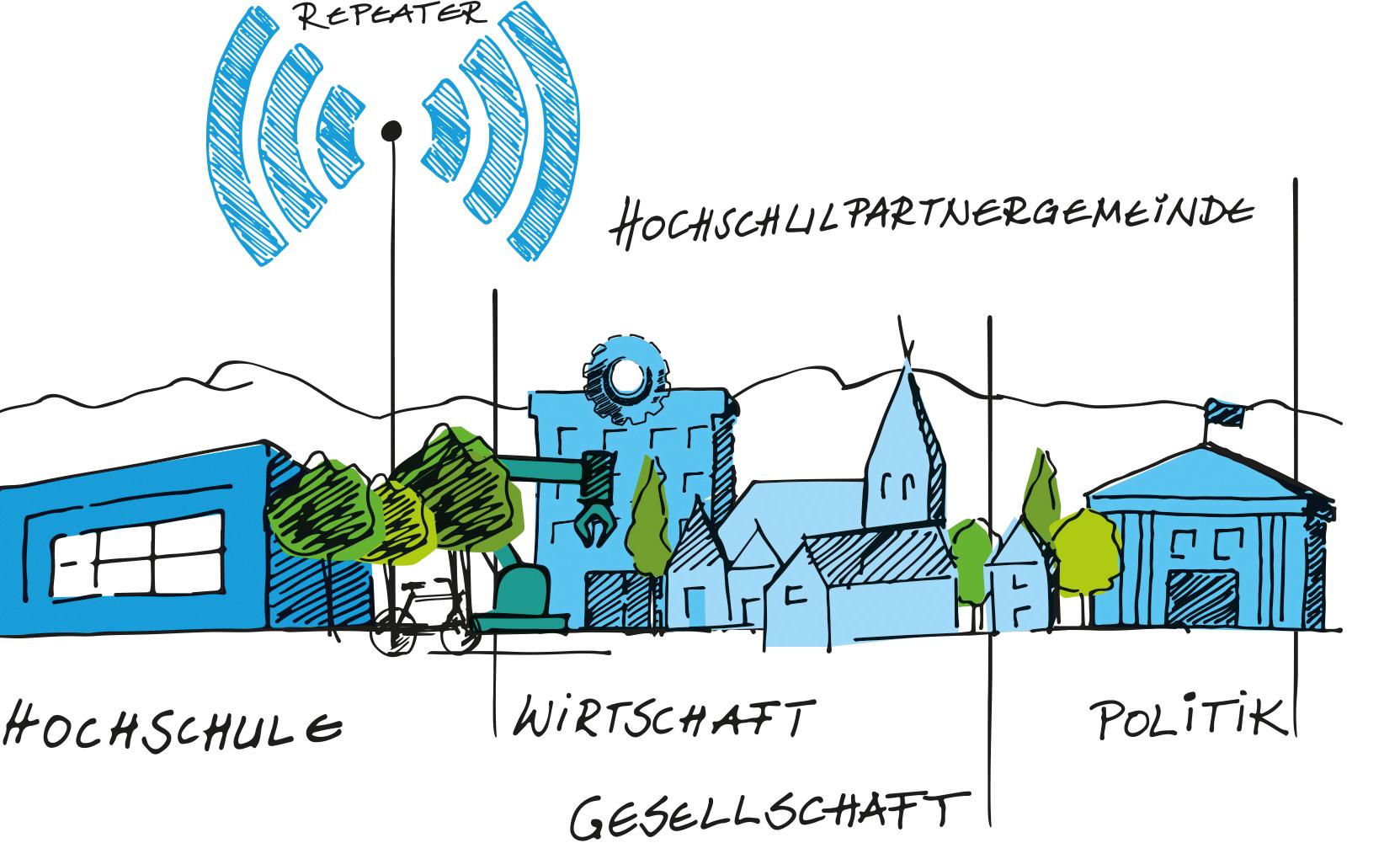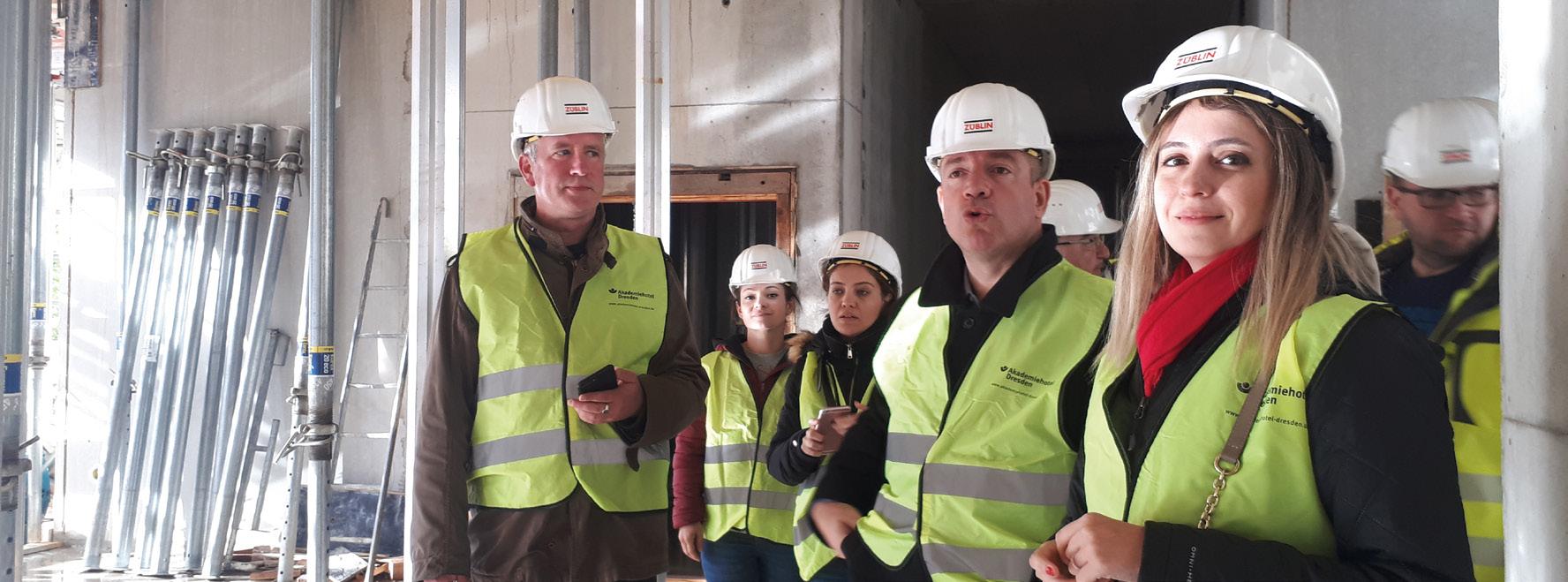
2 minute read
Preserving biodiversity through research
In the vicinity of nature reserves (map above), researchers in the DINA project investigate the effects of agricultural land use on insects
Preserving biodiversity
International Centre for Sustainable Development participates in project on biodiversity research
The diversity of our ecosystem is threatened. Insect loss, in particular, is a central topic. What can we do about it? The research project “Diversity of Insects in Nature Protected Areas” (DINA) aims to find answers to these and other pressing questions. The International Centre for Sustainable Development (IZNE) of Hochschule Bonn-Rhein-Sieg is one of the eight project partners. Others include the Special Botany Work Group of Justus Liebig University of Giessen and the Entomological Association Krefeld. The Nature and Biodiversity Conservation Union (NABU) leads the project. How can nature be saved from further impoverishment? This is the question that concerns IZNE Director Wiltrud Terlau. For this reason, the professor is involved as a board member in the Bonn biodiversity network BION. Partners for the DINA research project, which has been running since May 2019, come from this network. Pioneering project in applied biodiversity research As an interdisciplinary research project, DINA investigates how agricultural land use in the vicinity of nature reserves affects the biodiversity there. More specifically, it examines the impact on insects in 21 selected nature reserves nationwide. The Federal Ministry of Education and Research is funding the project with over 4 million euros. So-called Malaysian traps set up in the nature reserves catch insects, which are then examined. The traps are usually set and checked by volunteers. “An interdisciplinary approach and strong cooperation with the non-academic partners are

For counting and identifying, they use so-called Malaysian
traps (right) essential for the success of the project. We can learn a lot from and with each other”, emphasises Terlau.
The IZNE identifies all relevant interest groups – such as farmers and local residents – to search jointly for solutions to preserve biodiversity. This is to be achieved by means of qualitative and quantitative studies. Later the participants are to be heard in so-called social labs. The project serves as a fact-finding mission. “The focus of the species protection debate must be on facts and not emotions, otherwise we won‘t get anywhere”, says scientific project collaborator Angela Turck commenting on the political implications. Concrete recommendations for action should be derived from the research results. DINA runs until April 2022 – enough time, not only to introduce scientific findings into the species protection debate but also to translate them into action.









